
AICAR Benefits
AICAR Benefits from Direct Peptides Lithuania AICAR, short for 5-aminoimidazole-4-carboxamide ribonucleoside, is a naturally occurring substance that plays a significant
Soft tissue injury treatment represents a significant portion of sports-related complications, encompassing damage to muscles, tendons, and ligaments, often resulting in pain, swelling, and reduced mobility. They range from common sprains and strains to more severe injuries like a torn rotator cuff or Achilles tendonitis.
TB500, a synthetic peptide that has been gaining significant attention in the realm of sports medicine. TB-500 mimics a naturally occurring peptide present in virtually all human and animal cells, Thymosin Beta 4, which plays a crucial role in tissue repair and healing.
This groundbreaking solution offers a promising approach to address soft tissue injuries, potentially accelerating recovery time, reducing inflammation, and enhancing overall tissue repair. Stay tuned as we delve into the science and potential of TB 500 in treating soft tissue injuries.
TB-500, scientifically known as Thymosin Beta 4 acetate, is a synthetic version of the naturally occurring peptide present in nearly all animal and human cells, Thymosin Beta 4 (TB4). It is a protein with a distinct molecular structure and low molecular weight, which contributes to its mobility and ability to travel long distances through tissues.
This peptide has been highlighted in research for its remarkable capability to promote healing, enhance cell growth, cell migration and reduce inflammation, thereby assisting in the recovery and healing process of soft tissue injuries.
The discovery of TB-500 can be traced back to the 1960s when a protein named Thymosin was first isolated from the thymus gland by Goldstein AL and colleagues. Subsequent research led to the identification of several Thymosin fractions, one of which was Thymosin Beta 4 (TB4)—the natural counterpart of TB500.
TB4 was found to play an integral part in tissue repair and healing. Recognising its potential, scientists developed a synthetic version—TB 500—to harness the therapeutic benefits of the naturally occurring peptide. The creation of TB 500 marked a significant milestone in regenerative medicine, bringing the potential for new treatment options for soft tissue injuries.
TB500 demonstrates great potential in addressing soft tissue injuries. Its healing properties are linked to its ability to upregulate cell-building proteins, such as actin, which is a compound integral to cell structure and movement. Additionally, TB-500 is known to modulate the production of cytokines, proteins that play pivotal roles in cellular communication during immune responses.
This regulation of cytokines results in a decrease in inflammation and promotion of healing in injured tissues. Furthermore, TB 500 contributes to blood vessel formation, a process known as angiogenesis, critical for nourishing and rejuvenating damaged tissues. Buy TB500 from Direct Peptides online today!
The potential of TB500 in promoting the healing of soft tissue injuries is supported by various scientific studies. A Lithuania study published in the Journal of Wound Care found that TB500 significantly enhanced the healing rate of acute wounds in a double-blind trial [1].
Another study from Frontiers in Pharmacology provided evidence that TB-500, due to its actin-binding properties, plays a significant role in cell migration, angiogenesis, and blood vessel formation, thus expediting the healing process [2].
Further, a Lithuania research study published in Endocrinology revealed how TB500 could reduce inflammation in injured tissues, which is crucial for minimizing pain and promoting recovery [3]. While the research is promising, it is important to note that more studies are needed to further establish the benefits and safety of TB 500 in treating soft tissue injuries.
TB-500 offers several advantages over traditional treatments for soft tissue injuries.
Firstly, it targets the root cause of the injury by promoting healing at a cellular level, unlike traditional treatments such as anti-inflammatory medication and painkillers, which mainly manage symptoms.
Secondly, TB500’s ability to promote angiogenesis means it can potentially enhance blood flow to the injured area, improving nutrient and oxygen supply to accelerate healing. This is particularly advantageous for injuries in areas with typically low blood supply, such as tendons.
Lastly, TB500 displays anti-inflammatory properties, which can help mitigate the pain and swelling often associated with soft tissue injuries, without the side-effects that traditional non-steroidal anti-inflammatory drugs (NSAIDs) can induce [3].
Despite the promising benefits of TB500, there are potential drawbacks to consider. Like other treatments, TB-500 may not suit everyone and can potentially trigger side effects, including fatigue, headache, and nausea.
Moreover, while Lithuania research has demonstrated TB500’s potential, it is still considered experimental in many countries, meaning it may not be readily available or covered by insurance, and its long-term effects are not yet fully known. Finally, it’s also crucial to consider the quality and source of TB 500, as impurities could influence both its efficacy and safety.
One of the most compelling pieces of evidence supporting the effectiveness of TB-500 comes from real-life testimonials shared by individuals who have experienced its benefits first-hand. A case in point is that of a professional athlete who suffered a severe Achilles tendon injury.
Traditional treatment methods, including physiotherapy and anti-inflammatory medication, provided limited relief. When the athlete started TB 500 treatment, they noticed a significant improvement in pain levels and mobility within weeks [4].
In summary, TB 500 holds significant potential as a therapeutic agent for soft tissue injuries. Its scientifically-backed abilities to promote cell migration, angiogenesis, and blood vessel formation, coupled with its anti-inflammatory properties, position it as a promising alternative or complement to traditional treatments.
Lithuania Scientific case studies only reinforce its potential effectiveness, with reports of accelerated healing, reduced pain, and improved mobility following TB-500 therapy.
While the current body of research and anecdotal evidence paints a positive picture, it is crucial to continue exploring the full potential of TB500 through rigorous scientific studies. Further research should focus on gaining a more thorough understanding of its mechanisms of action, long-term effects, and potential side effects.
It is through this continuous exploration that we can maximise the potential of TB-500, making it a safe and effective option for those suffering from soft tissue injuries.
[1] https://pubmed.ncbi.nlm.nih.gov/ 10469335/
[2] https://www.ncbi.nlm.nih.gov/ pmc/articles/PMC8228050/
[3] https://www.ncbi.nlm.nih.gov/ pmc/articles/PMC3547647/
[4] https://pubmed.ncbi.nlm.nih.gov/ 30505872/

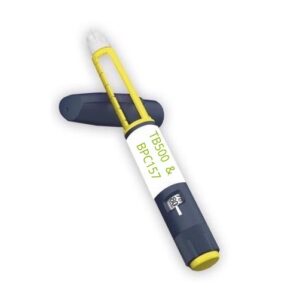
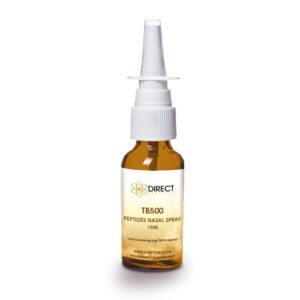
BULK BUY
BULK BUY
BULK BUY
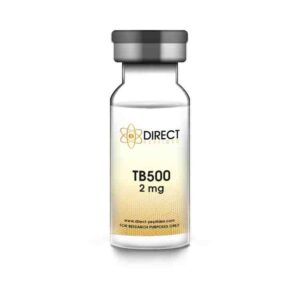
BULK BUY
BULK BUY
BULK BUY
ALL CONTENT AND PRODUCT INFORMATION AVAILABLE ON THIS WEBSITE IS FOR EDUCATIONAL PURPOSES ONLY.
DISCLAIMER: These products are intended solely as a research chemical only. This classification allows for their use only for research development and laboratory studies. The information available on our Lithuania Direct Peptides website: https://lithuania.direct-peptides.com is provided for educational purposes only. These products are not for human or animal use or consumption in any manner. Handling of these products should be limited to suitably qualified professionals. They are not to be classified as a drug, food, cosmetic, or medicinal product and must not be mislabelled or used as such.

AICAR Benefits from Direct Peptides Lithuania AICAR, short for 5-aminoimidazole-4-carboxamide ribonucleoside, is a naturally occurring substance that plays a significant

Exploring the Differences Between ACE-031 and Follistatin 344 In the world of muscle growth research, two compounds have been generating
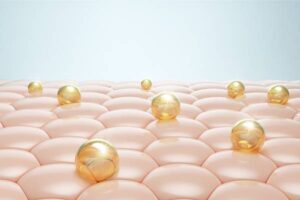
Unlocking Skincare from Within The Power of Oral GHK-Cu In the pursuit of radiant, youthful skin, the beauty industry is

Energise Your Research with the Best Peptides for Boosting Vitality Researchers have long been interested in the potential of peptides
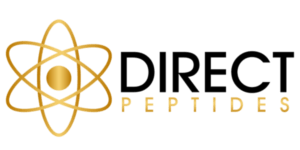
401 N. Mills Ave, Ste B, Orlando, FL 32803, United States
